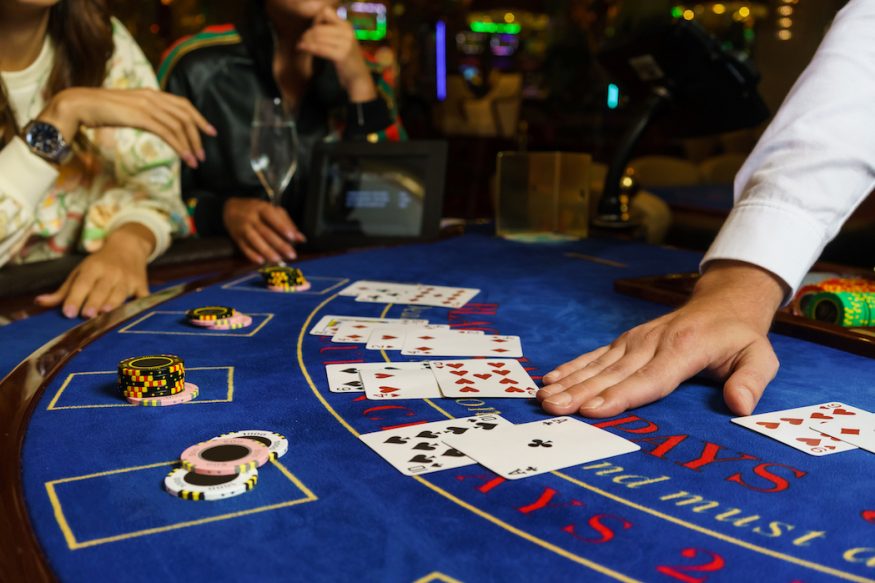Do Casinos Really Cheat? Exploring the Truth Behind the Myths

Understanding the Player's Suspicion: Are Casino Games Rigged?
Ever since casino gaming rose to fame, questions about the honesty of casinos have circulated among gamblers around the world. Not only seasoned players but also casual visitors often wonder if the house plays fair or secretly stacks the odds even more heavily in its favor. These concerns are frequently fueled by “bad-beat” stories, urban legends, and tales of suspicious losses at the tables.
After being recognized for my work on "The Real Hustle," I’ve spoken with individuals from every facet of the casino world-owners, employees, and avid gamers. A recurring theme among player anecdotes is suspicion: Were they cheated, or was it simply rotten luck? In every conversation, I find that the answer hinges on a single crucial factor: location.
When Location Determines Casino Integrity
Your choice of venue plays a critical role in determining the fairness of your gaming experience. Traveling abroad and stumbling into a local gambling house without researching its reputation or legal status can be a recipe for disaster. Unregulated or illicit casinos often create an illusion of legitimacy with professional-looking interiors and signage, but once inside, safeguards disappear.
In many instances, these venues are little more than makeshift gaming rooms tucked away in private spaces-garages, apartments, or back rooms. Victims, lured by persuasive locals or “ropers,” may be led into situations where the odds are not just mathematically unfavorable, but blatantly manipulated. Stories abound of players waking up disoriented after losing everything, with little recollection of the events due to compromised drinks or calculated distractions.
In these environments, gamblers are vulnerable to outright cheating-whether through sleight-of-hand card manipulation, loaded dice, or deliberately skewed odds that drain wallets alarmingly fast.
In contrast, the world’s major gambling destinations-Las Vegas, Atlantic City, Macau-operate under intense regulatory scrutiny. Their reputations for fairness are vital assets. Any credible accusation of cheating would inflict enormous damage, not just on a single venue but across the city’s entire gaming industry. Thus, at reputable casinos, multiple layers of oversight and security make cheating by the house virtually impossible.
The Evolution of Casino Practices: From Corruption to Corporate Standards
Modern casinos, especially in prominent markets, have come a long way from the murky past where questionable ethics sometimes prevailed. Decades ago, it wasn’t unusual for some Las Vegas establishments to quietly facilitate minor cheats to protect profits. Managers might look the other way, and “bust-out” dealers-highly skilled in cheating techniques-were sometimes used to curb a lucky player’s winnings.
These bust-out dealers, often trusted ex-professionals, could turn the tide with methods like dealing second cards, manipulating decks, or slowly ensuring the house recouped any heavy losses. There were even rare cases where a drink was drugged to alter a player’s decisions.
The shift truly began when corporate ownership replaced the old guard. As Las Vegas worked to distance itself from organized crime, regulations tightened, and the culture changed. Surveillance technology-“the eye in the sky”-became standard, catching both players and insiders who attempted to cheat. Reputational risk began outweighing short-term profits derived from cheating.
Today, those old-school tactics are all but extinct in legitimate establishments. With advanced monitoring and substantial legal consequences, modern casinos rely on their mathematical edge-known as the house advantage-rendering cheating unnecessary and counterproductive.
Understanding Player Psychology: When Luck Turns Sour
Many gamblers attribute reversals of fortune to conspiracy or bad intent, especially after a hot streak grinds to a halt. However, a streak of bad cards or a sudden change in momentum is usually just the nature of probability at work, not evidence of manipulation.
The human brain is wired to find patterns, so it’s easy to suspect unfairness when a run of luck abruptly changes. Yet, statistical variance is an inherent part of all casino games. Swapping dealers, seeing new faces at the table, or noticing management walking nearby might make players uneasy, but these occurrences rarely impact the outcome. Most casinos cannot and would not risk their livelihoods for the minor advantage cheating might offer.
If a player genuinely suspects foul play, location and reputation remain the most telling clues. Gambling in countries or establishments with weak regulatory frameworks will always carry more risk than playing at top-tier resorts in established markets. The same caution applies to online platforms, but that’s a separate discussion with its own considerations.
The Bottom Line: Where You Play Is What Matters Most
While it’s impossible to guarantee that cheating is extinct everywhere, in major regulated regions, the risks of being openly cheated by the house are minuscule. Reputable casinos operate under strict oversight and rely on the built-in advantage provided by their games’ structure.
To minimize the risk of encountering unfair practices, always gamble at regulated venues in recognized jurisdictions, and steer clear of backroom operations and unlicensed establishments. In the end, knowledge, vigilance, and a little research are your best defense-and your best bet for an enjoyable casino experience.













